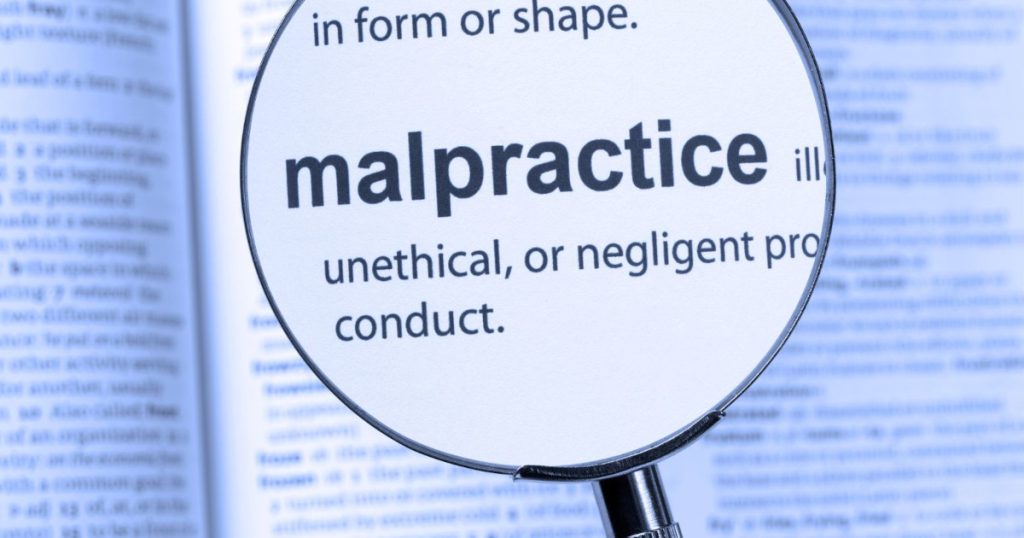Featured Article

As the sun dipped below the horizon, Sarah’s world shattered. A routine visit to the hospital for what she thought was a minor ailment turned into a nightmare. Misdiagnosed and left untreated, her condition worsened. Weeks of agony followed before the truth emerged: medical malpractice had robbed her of precious time and health. Now, Sarah seeks justice, grappling with the physical and emotional scars left by negligent care. Her story is not unique; countless others suffer the consequences of medical errors. Join us as we explore common types of medical malpractice, shedding light on the shadows of the healthcare system.
Medical malpractice is a sobering reality that affects countless individuals across the globe. When considering the vast array of medical errors, certain types of malpractice cases stand out due to their prevalence and impact on patients. In Texas, where healthcare services are integral to the community, understanding these common types of medical malpractice is crucial. Let’s delve into the intricacies of these cases, shedding light on their complexities and implications.
Misdiagnosis or Delayed Diagnosis
One of the most prevalent forms of medical malpractice is misdiagnosis or delayed diagnosis. This occurs when a healthcare provider fails to accurately diagnose a medical condition or delays the diagnosis, leading to worsened health outcomes or even death. Whether it’s cancer, heart disease, or other serious illnesses, the consequences of misdiagnosis and/or delayed diagnosis can be catastrophic.
Surgical Errors
Surgical procedures carry inherent risks, but when errors occur due to negligence or incompetence, patients suffer needlessly. Surgical errors can range from performing the wrong procedure or operating on the wrong body part, to leaving surgical instruments inside the patient’s body. These mistakes can result in severe complications, additional surgeries, and permanent disabilities.
Medication Errors
In the fast-paced environment of healthcare facilities, medication errors are alarmingly common. This type of malpractice includes administering the wrong medication, incorrect dosage, or failing to consider a patient’s allergies or medical history. Medication errors can lead to adverse reactions, drug interactions, and in severe cases, fatal outcomes.
Birth Injuries
Childbirth should be a joyous occasion, but when medical professionals fail to uphold their duty of care, it can result in birth injuries. These injuries may occur due to improper use of delivery instruments, failure to monitor fetal distress, or delays in performing necessary interventions such as cesarean sections. Birth injuries can have lifelong consequences for both the child and the parents, necessitating extensive medical care and support.
Anesthesia Errors
Anesthesia is a crucial component of many medical procedures, but when administered incorrectly, it can pose serious risks to patients. Anesthesia errors may involve administering too much or too little anesthesia, failing to monitor the patient’s vital signs during surgery, or neglecting to address complications promptly. These medical malpractice cases can result in anesthesia awareness, brain damage, or even death.
Failure to Obtain Informed Consent
Patients have the right to make informed decisions about their healthcare, including the risks and benefits of proposed treatments or procedures. When healthcare providers fail to obtain valid informed consent or adequately communicate the risks involved, it constitutes medical malpractice. Patients may undergo procedures without fully understanding the potential consequences, leading to not only procedures performed on parts of the body without consent, but feelings of betrayal and mistrust as well.
Failure to Follow Standard Protocols
Healthcare facilities have established standard protocols and procedures to ensure patient safety and quality of care. However, when healthcare providers deviate from these protocols or fail to follow established guidelines, it can result in medical errors and patient harm. Whether it’s failing to sterilize equipment properly, neglecting to monitor vital signs, or disregarding post-operative care instructions, these lapses in protocol can have serious repercussions.
Nursing Home Neglect or Abuse
Nursing home residents are among the most vulnerable members of society, relying on caregivers to meet their basic needs and ensure their well-being. Unfortunately, instances of neglect or abuse in nursing homes are all too common. Medical malpractice cases may include inadequate supervision, medication errors, physical abuse, emotional abuse, or neglecting to provide necessary medical care. Nursing home neglect or abuse can have devastating effects on the physical and psychological health of residents, warranting legal action to hold responsible parties accountable.
Final Thoughts on Medical Malpractice Cases
Medical malpractice encompasses a wide spectrum of errors and negligence that can have profound consequences for patients and their families. From misdiagnosis to surgical errors, each type of malpractice case underscores the importance of upholding the highest standards of care in the healthcare industry. By raising awareness about these common types of medical malpractice, we can strive to prevent future errors and ensure that patients receive the quality care they deserve.
If you’re a victim of medical malpractice and have questions about your legal rights, contact us at the Law Office of David M. Kennedy for a free consultation. Your health and your future are too important to leave to chance. Call (903) 819-0720 or click here to email our law office.




